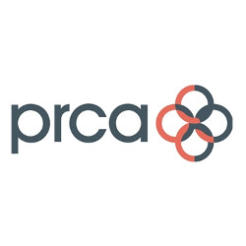The Lobbying Act is a tax on campaigners which has led some charities to run up legal and accounting bills of tens of thousands, according to a submission to Lord Hodgson's review of the act.
In a submission to the government’s Hodgson Review of Third Party Campaigning, the Public Relations Consultants Association condemned the Lobbying Act, which it says silences volunteers and smaller charities, and shows a "fundamental misunderstanding" of how modern communication works.
It said the act has “severely limited” the campaigning activities of charities, and has called for a “fundamental overhaul” of the Electoral Commission’s guidance.
The submission said that “some organisations reported bills for lawyers and accountants running into the tens of thousands”, and because campaigning is vital for some organisations in meeting their charitable objectives, this has “amounted to a punitive extra tax on campaigners”.
The PRCA also states that volunteers often felt threatened by the act and the “repercussions it may bring on them and the charity they support”, which had the effect of “essentially, silencing volunteers and smaller charities”.
It criticises the Electoral Commission guidance, calling it “often confused and unclear”, and describing it as often “contradictory (with itself or even with wider charity law) or confusing”. It is calling for a “fundamental overhaul if it is to be fit for purpose”.
It said an example in the guidance which looked at whether a signed letter to the national press would be covered showed a “fundamental misunderstanding of how modern communications works”.
The PRCA said it was concerned “that the Lobbying Act is the thin end of the wedge”, adding that it would reject any further attempts to weaken the ability of charities to campaign.
PRCA recommendations
It proposed a number of solutions which it is invited the Hodgson review to consider, including reducing the regulation period to three or four months - from 12 months before general elections and four months before elections to the EU parliament or the devolved governments of Wales, Scotland and Northern Ireland.
It says that this could help partly alleviate “the overburden of bureaucracy and the threat to freedom of speech”.
The PRCA has recommended that the Electoral Commission invests in staff with experience of campaigning and running charities, and that the Charity Commission and Electoral Commission work more closely to ensure each other’s guidance doesn’t contradict each other.
It has also called for pro-bono support to be exempt from the Act, because it “prevents our agency members from supporting causes they would ordinarily have offered free advice and time to”.
Simon Francis, vice chair of the PRCA’s charity and not-for-profit group, said: “This Act may now be with us to stay, but all campaigners need to have their say to ensure the worst silencing effects of the regulations are alleviated and charities have clearer, straight-forward guidance to work from.
“The PRCA charity and not-for-profit group welcomes the opportunity to contribute to these formal reviews with suggestions for practical improvements to the regulations. We also hope that these suggestions will lead the Electoral Commission and Charity Commission to engage more with our members going forward.”
Lord Hodgson must produce his review by November 2016, but has previously said that he hopes to do it by the end of this year.









